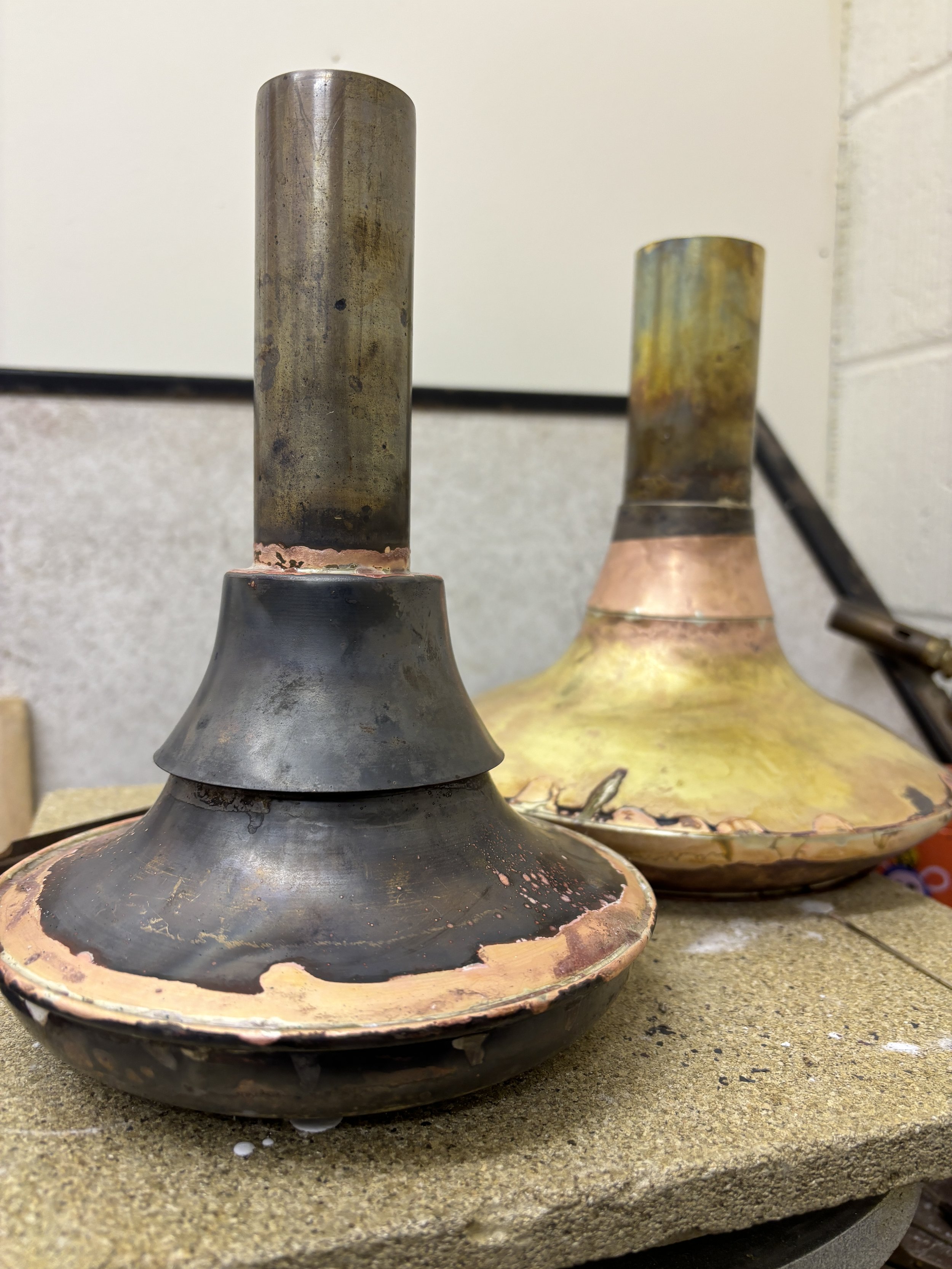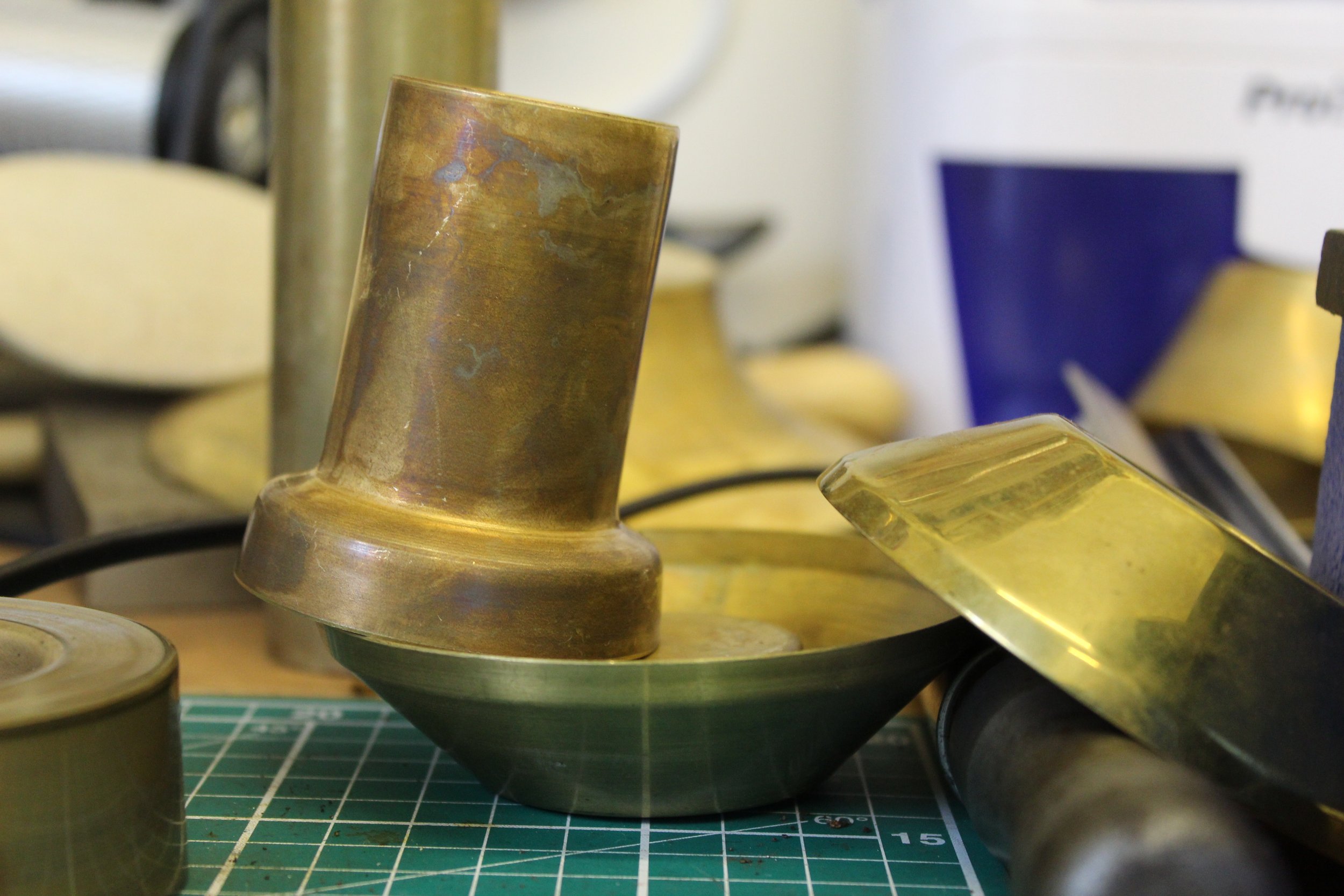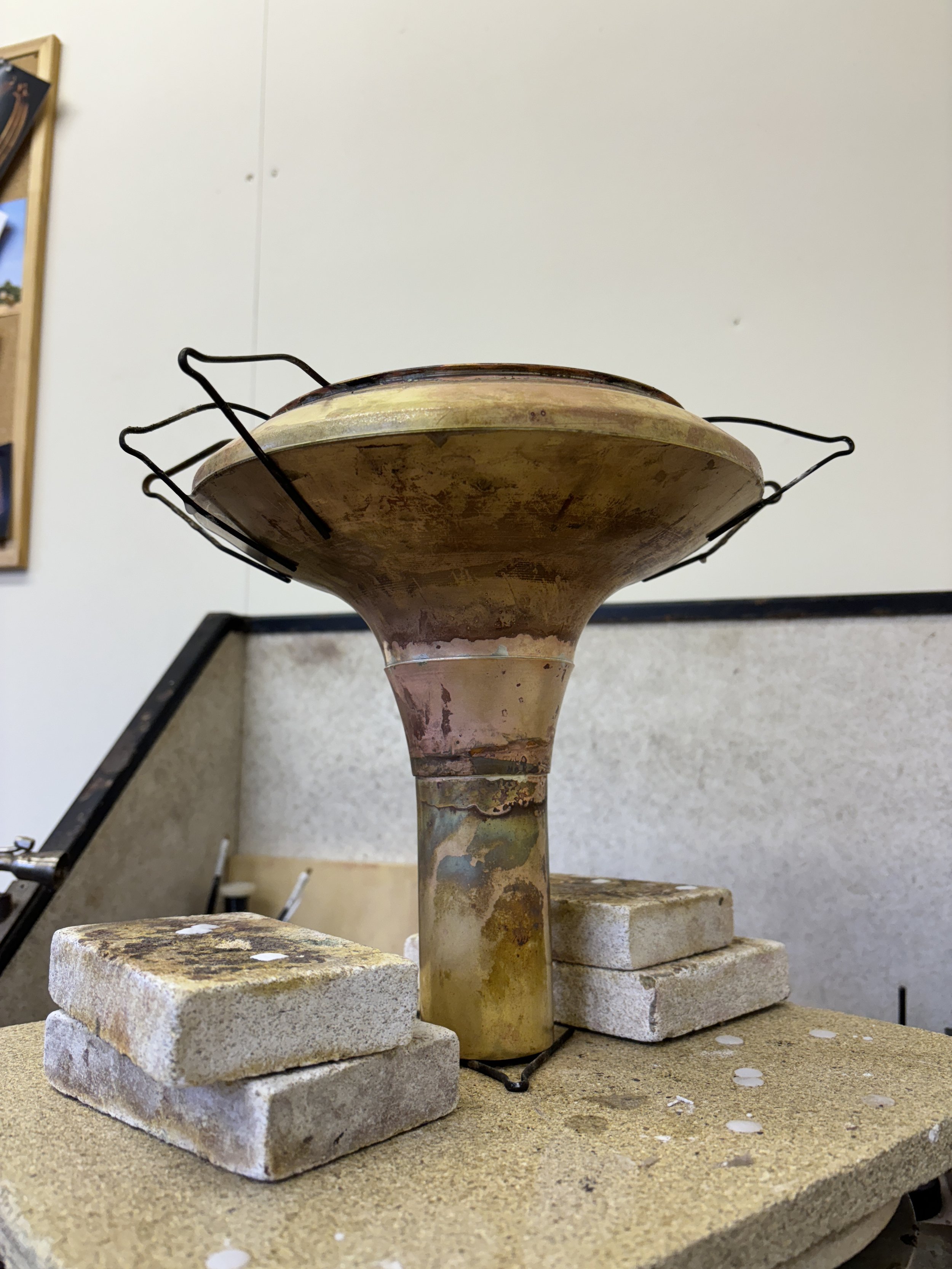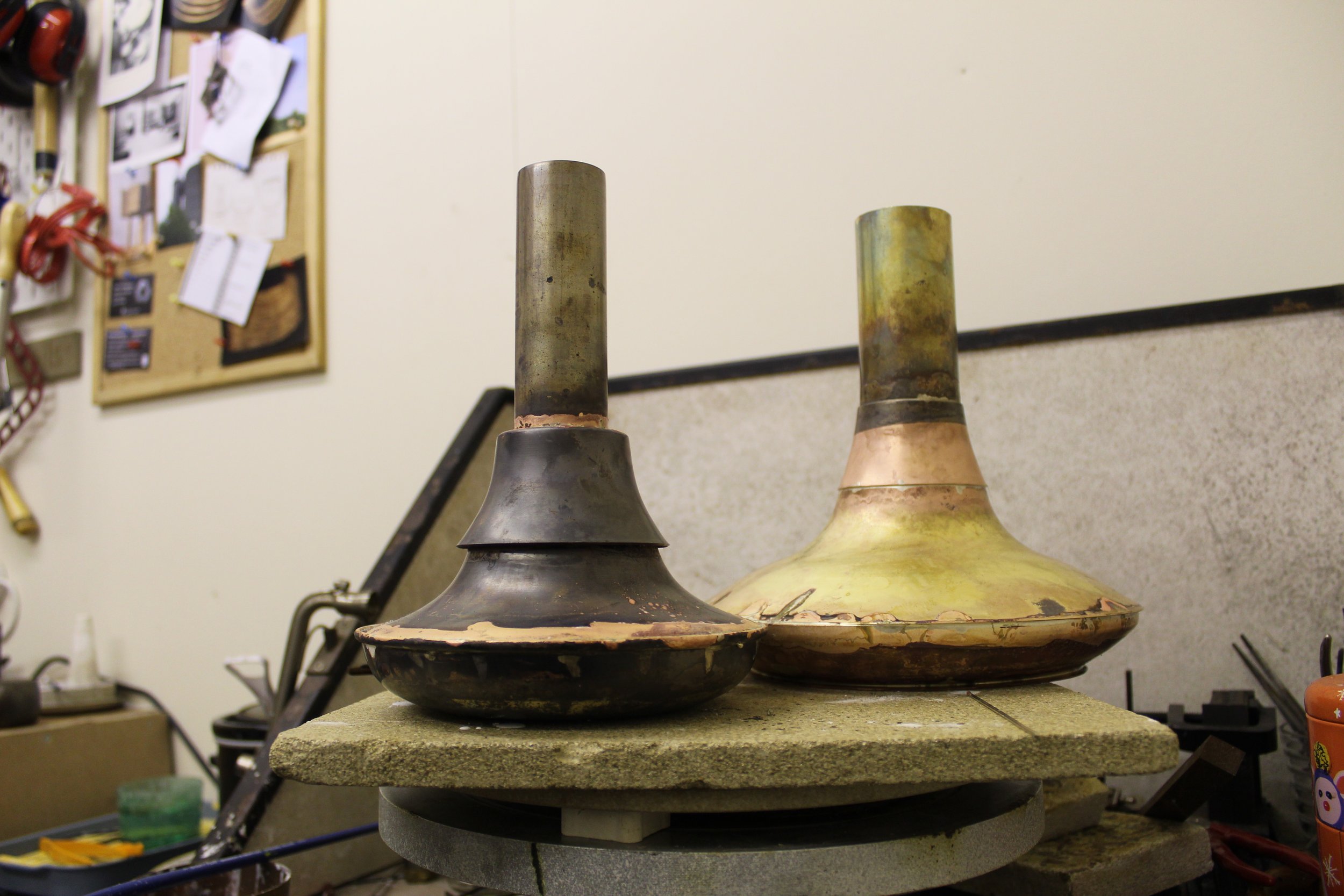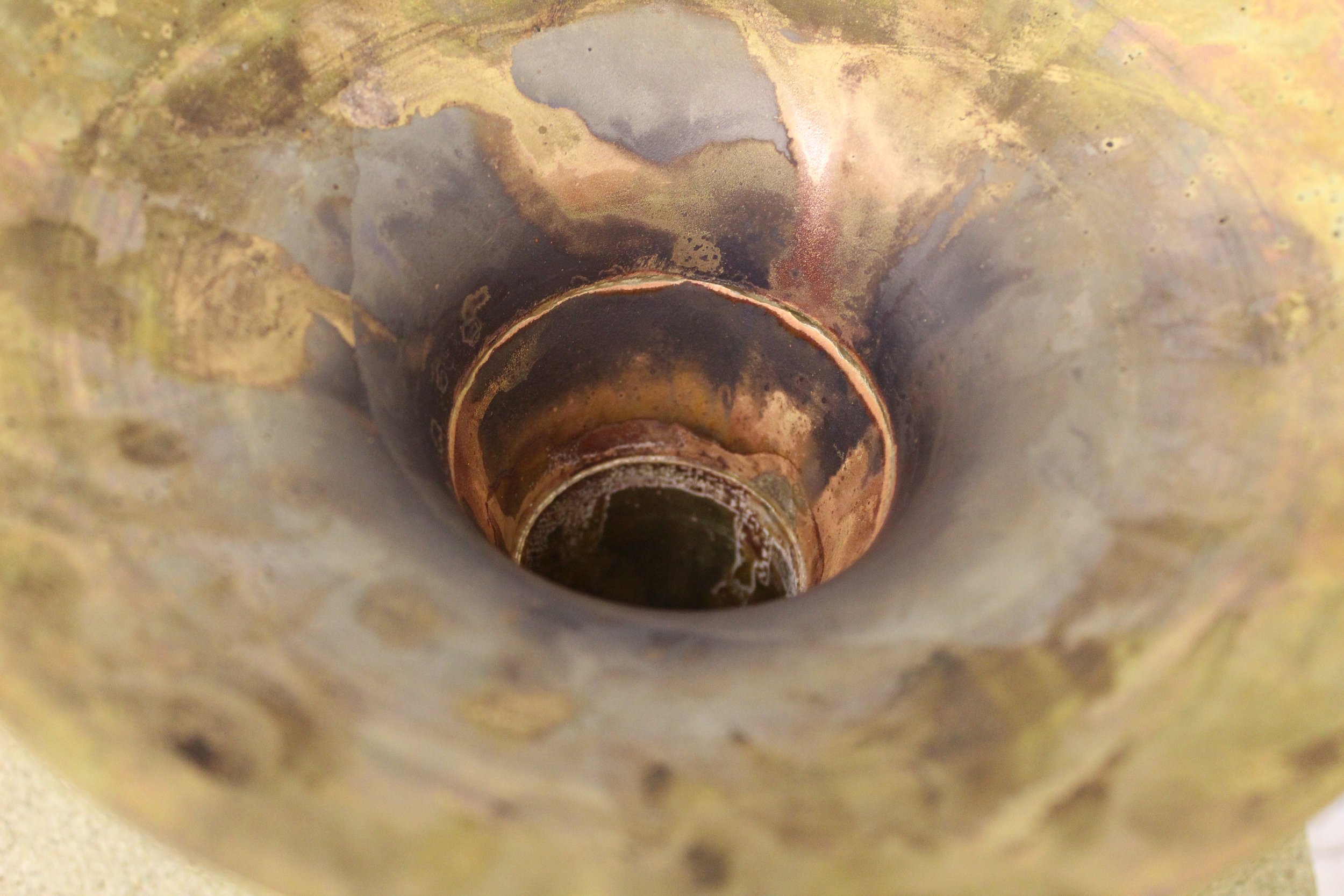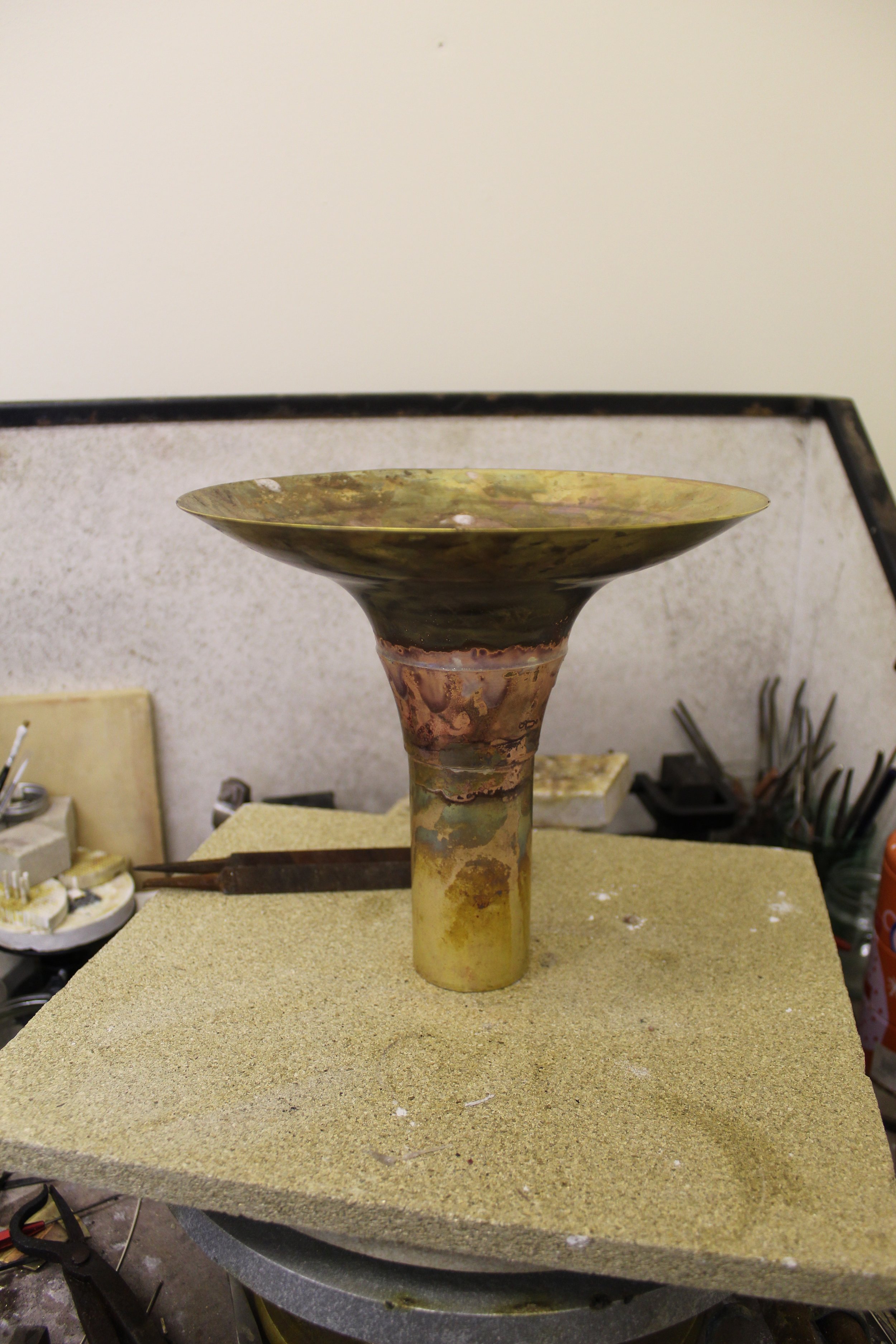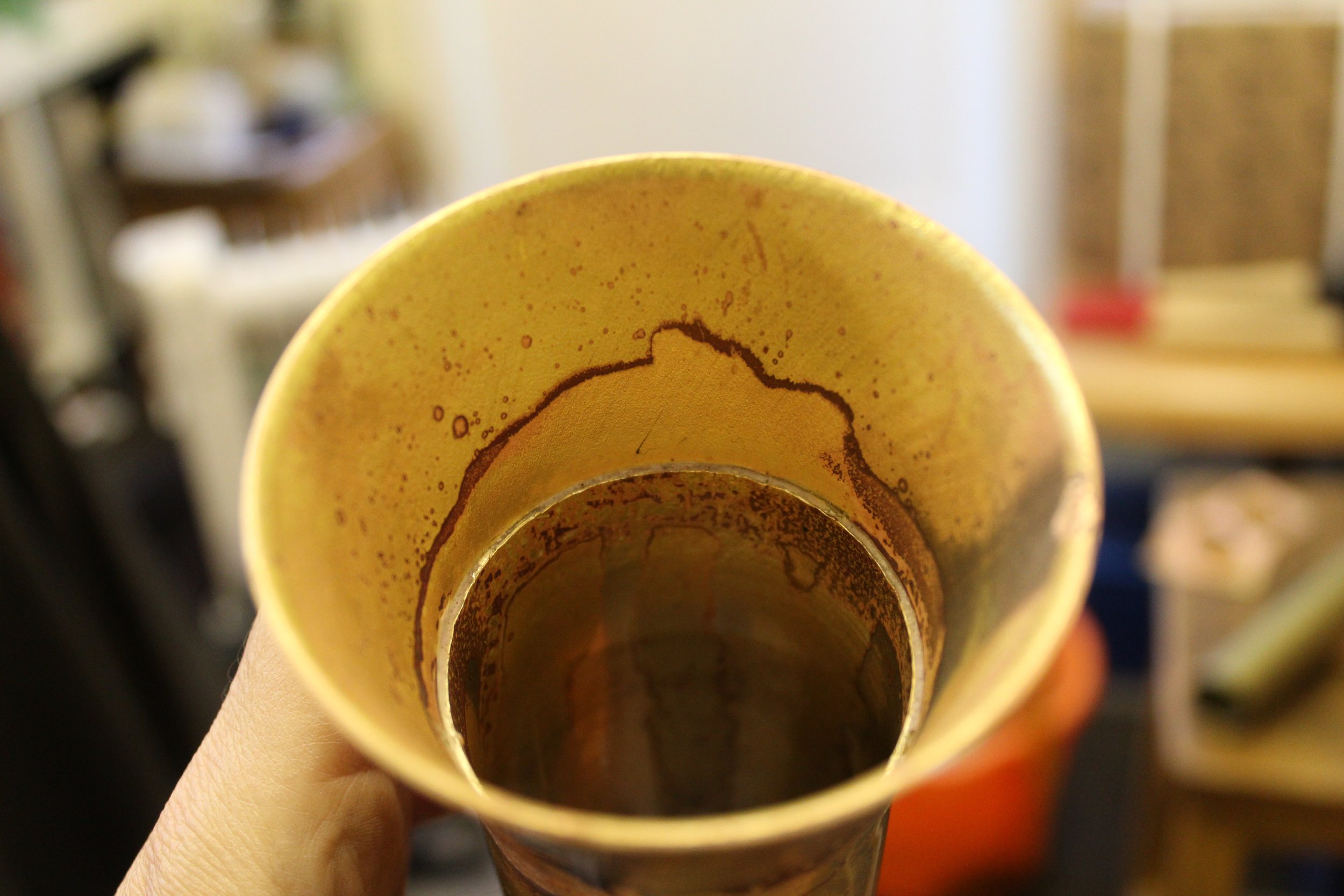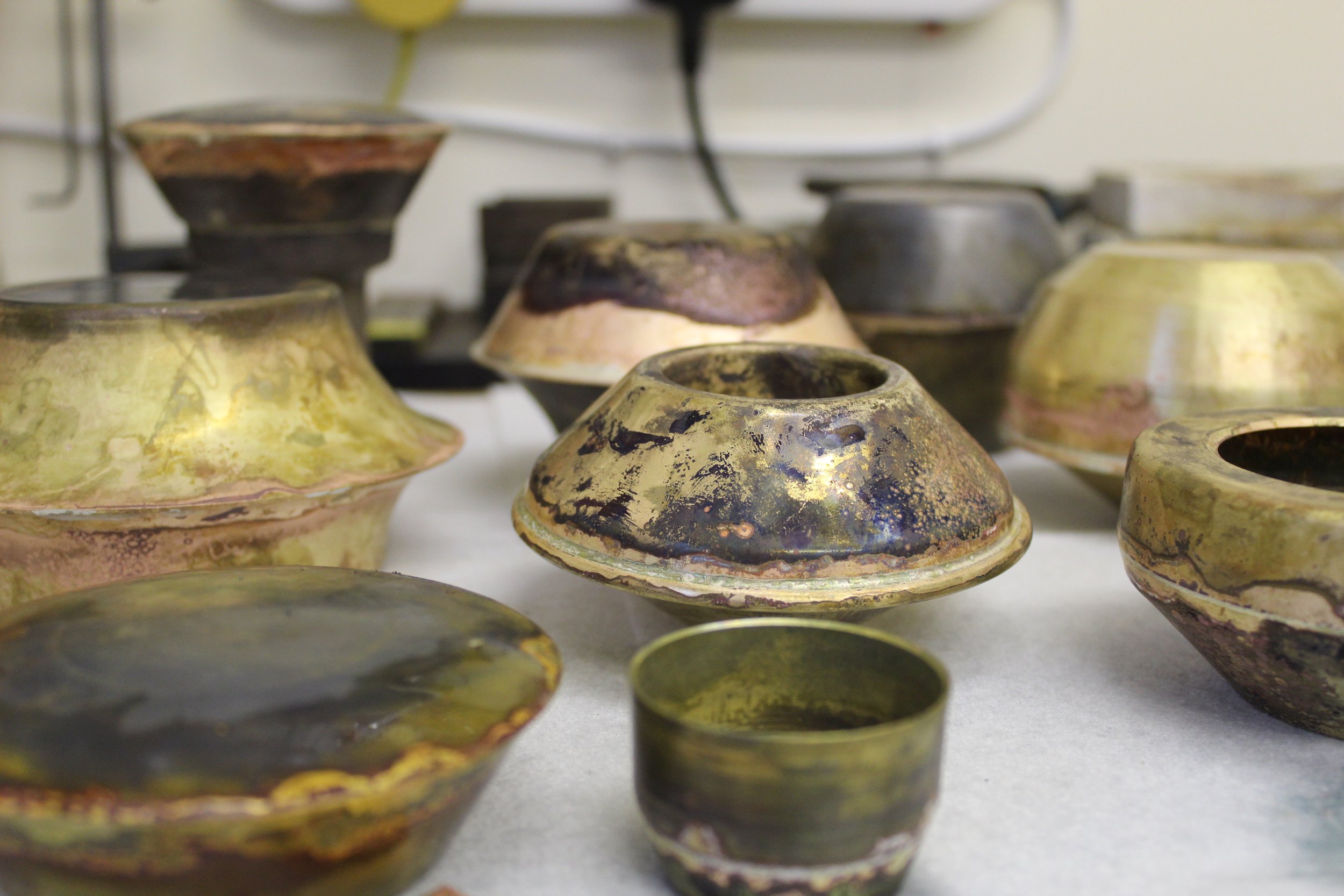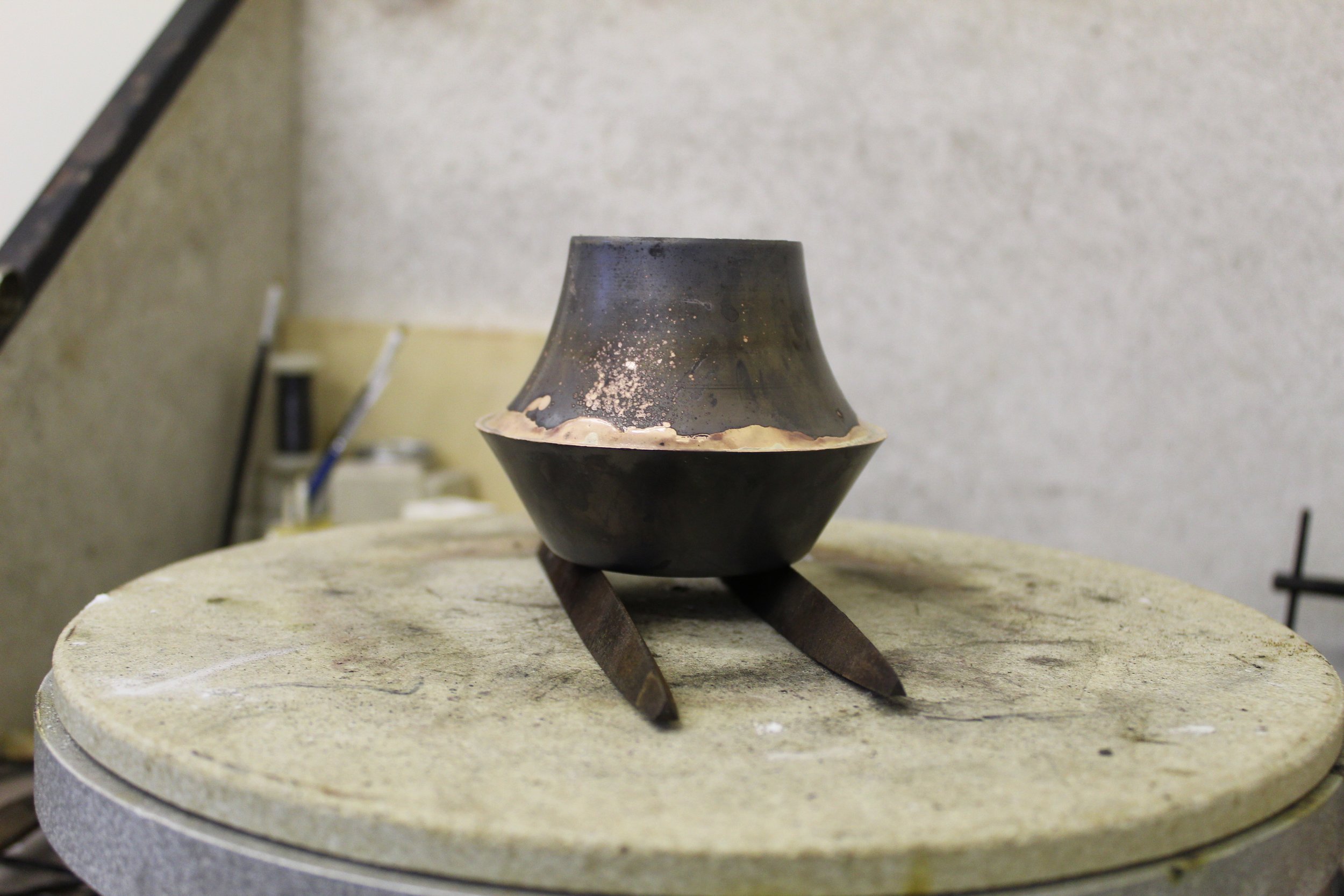/// LARGER SCALE SOLDERING MASTERCLASS ///
Thanks to my Arts Council England @acegrams funding I was able to spend two days with Spinner/Silversmith Warren Martin, learning how to solder larger forms.
I'm confident in my soldering abilities within my current scope of works but don't have that much experience soldering anything larger than around 8cm tall. This is something I wanted to work on; soldering larger items with multiple components.
I specifically chose Warren for this masterclass as working in the trade means he is used to high volumes of work. Repetition which gives you the opportunity to really get to grips with the process, and learn the rights and wrongs. I wanted to learn hard and fast - how best to solder on a larger scale and how to trouble shoot.
I also wanted to learn in my own studio, on my own equipment. I don't have the money (or space) to buy more equipment so I need to learn a way which works for me, with what I have to hand. I have been on courses before where you learn in a fully equipped studio with access to everything you could ever dream of using, and while that is fantastic and a real luxury, although it can mean it doesn't quite translate into your own set up unless you buy everything you used during the session, to replicate the set up.
We discussed what to practice soldering ahead of the sessions. My funding covered a sheet of brass and a day spinning time for Warren, which he used to create different shapes relevant to my water tower sketches. Spinning is where you start with a flat sheet of metal and turn it into a 3D form using a big lathe, with a variety of very large tools (think massive screwdriver with a smooth end and you aren't far off). Spinning is a way of creating forms in a time efficient way. If I had raised these components it would have taken me weeks, probably more like months given the quantity.
Over two days I learned using a different form of solder, and a different type of flux to what I am used to, and I soldered the best part of 20 objects. All with at least two components, many with three, and a couple of very large pieces consisting of five components each. Both are more than double the size of anything I have soldered before, with far more components in varying shapes and sizes. Each one a new learning curve.
These pieces are still to be tidied up, the rest of the oxidisation removed (the black on the surface caused during the soldering process) and any unnecessary bits of solder removed. Although I have to say, even the worse "extra" solder on any of these is a fraction of what my previous soldering attempts were on my larger (small) pieces. Hopefully I won't be returning to the days of having to spend far too long filing away the big splurges of solder in the wrong place!
I learnt so much. Warren shared his knowledge, guiding me through the different techniques, and was on hand to keep me on the right track. Working as a silversmith is a very lonesome career. Some cities and towns have a good network of shared studios and sometimes I envy that. We don't have anything like that here in Norfolk. Working alongside others, having that sounding board to bounce ideas off, or to ask for help, and to just pick up tips naturally through conversation. Having that in my studio for two days was a real joy.
At the start of day one I'll admit the thought of soldering the two larger constructions seemed ridiculous and completely unachievable. However, by day 2 I was already so much more confident in what I was doing, and while it was still a bit daunting I felt it was definitely achievable. And as you can see, it was!. They need tidying up but I am very pleased with them, and proud that I managed to solder each of them. The plan is to tweak the designs to get them spot on, create the finished version and get them silver plated. I can then use photographs of these to show what is available, with the hope of getting future orders in to make them in solid silver. The dream.
I am grateful to Arts Council England for funding this workshop, without the Develop Your Creative Practice grant I could never afford to do anything like this. My practice simply wouldn't be able to develop in the same way without it. I'm still pinching myself at the opportunities the funding is giving me - this is the first of three different funded skills development courses alongside some creative and business development opportunities also. Thank you to everyone who plays the lottery, as that is where the money has come from (which I regularly think about when I buy the occasional scratchcard).
The first month of this year has been so so good for my practice, in so many ways, and I'm excited by what else is to come!
Supported using public funding by Arts Council England

